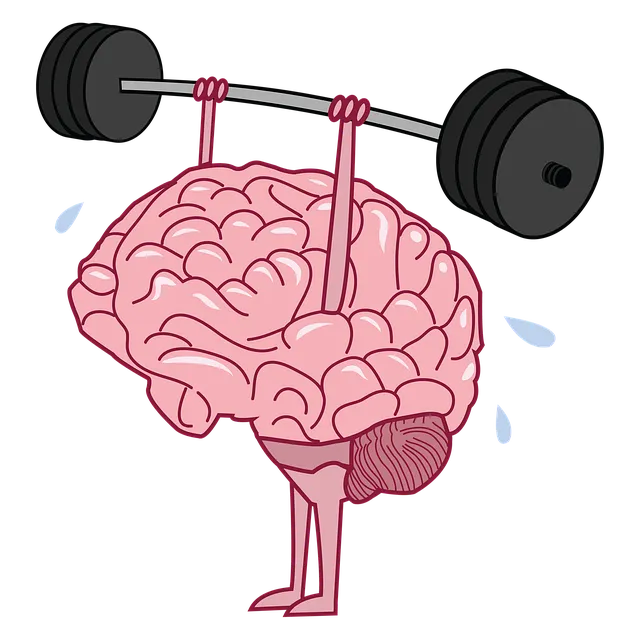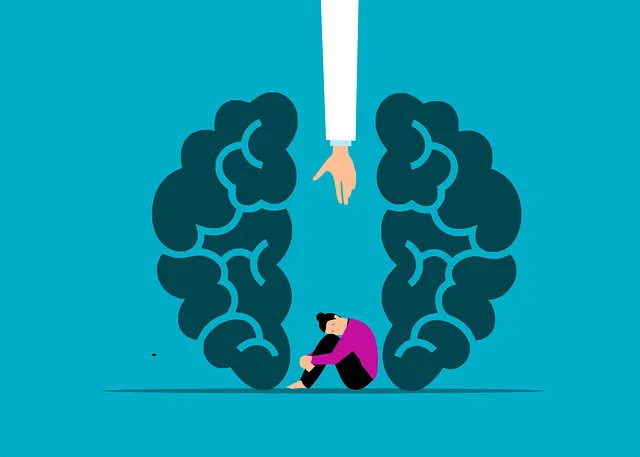Lone Tree Kaiser Permanente behavioral health providers emphasize the impact of stress on physical and mental well-being, advocating for compassion cultivation to reduce stigma around mental illness. They deliver impactful workshops integrating evidence-based practices like Conflict Resolution and Emotional Intelligence. These sessions are tailored to participants' diverse needs, incorporating interactive activities and self-care strategies such as Mental Wellness Journaling. The providers create safe spaces with active listening and clear guidelines, focusing on anxiety relief and utilizing Mindfulness Meditation for comprehensive stress management evaluation.
Stress management workshops are becoming increasingly vital in today’s fast-paced world. This article explores how Lone Tree Kaiser Permanente is revolutionizing well-being by offering such workshops, with a focus on behavioral health providers’ crucial role. We’ll delve into the science behind stress and its impact, guide through designing effective content, and highlight strategies for creating supportive environments. Additionally, we’ll measure success and evaluate the workshop’s overall impact, emphasizing Lone Tree Kaiser Permanente’s commitment to empowering individuals through evidence-based practices facilitated by their behavioral health providers.
- Understanding Stress and Its Impact on Well-being
- The Role of Behavioral Health Providers in Stress Management Workshops
- Designing Effective Stress Management Workshop Content
- Creating a Supportive Environment for Workshop Participants
- Measuring Success and Evaluating the Workshop's Impact at Lone Tree Kaiser Permanente
Understanding Stress and Its Impact on Well-being

Stress is an inevitable part of modern life, but understanding its insidious nature and impact on well-being is key to managing it effectively. Lone Tree Kaiser Permanente behavioral health providers emphasize that chronic stress can manifest in various physical and mental health issues, ranging from increased heart rate and blood pressure to anxiety, depression, and even more severe mental illness. It disrupts our ability to cope with daily challenges, negatively affecting both personal and professional life.
In today’s fast-paced world, where demands are ever-increasing, fostering mental wellness becomes paramount. Compassion cultivation practices, advocated by Lone Tree Kaiser Permanente behavioral health experts, offer a path towards resilience. By acknowledging the interconnectedness of stress and mental illness stigma reduction efforts, these workshops aim to empower individuals with tools to navigate life’s stressors more effectively.
The Role of Behavioral Health Providers in Stress Management Workshops

Lone Tree Kaiser Permanente behavioral health providers play a pivotal role in organizing and facilitating stress management workshops. These professionals are equipped with expertise in various evidence-based practices, including Conflict Resolution Techniques and Emotional Intelligence, which are integral to effective workshop content. They ensure that participants gain practical tools to navigate stressful situations, enhance self-awareness, and improve overall well-being.
Moreover, Lone Tree Kaiser Permanente’s behavioral health providers contribute significantly to Mental Illness Stigma Reduction Efforts by creating safe spaces where individuals can openly discuss their experiences. Through interactive exercises and group discussions, they foster understanding and empathy among participants, ultimately promoting a more inclusive environment. Their guidance helps workshop attendees develop strategies to manage stress in daily life, leading to improved mental health outcomes.
Designing Effective Stress Management Workshop Content

When designing a stress management workshop, it’s crucial to tailor content that resonates with participants’ needs and backgrounds. Lone Tree Kaiser Permanente behavioral health providers recommend integrating interactive activities and diverse learning styles to maximize engagement. Incorporate practical tools like Mental Wellness Journaling Exercise Guidance to empower individuals with self-care strategies they can implement immediately.
Focus on addressing common stressors specific to the healthcare profession, incorporating Crisis Intervention Guidance relevant to their daily challenges. Risk Management Planning for Mental Health Professionals can also be woven into discussions, emphasizing the importance of self-preservation and resilience in demanding environments. Through these comprehensive approaches, workshops become dynamic and impactful, fostering a culture of mental wellness within Lone Tree Kaiser Permanente.
Creating a Supportive Environment for Workshop Participants

Creating a supportive environment is paramount for successful stress management workshops. Lone Tree Kaiser Permanente behavioral health providers understand that attendees need to feel safe and comfortable to openly discuss their struggles and share personal experiences. Achieving this involves fostering an atmosphere of empathy, confidentiality, and non-judgment.
The Mental Wellness Podcast Series Production emphasizes the importance of active listening and respectful interaction among participants. A well-structured workshop with clear ground rules helps establish a supportive setting. Additionally, integrating risk assessment practices for mental health professionals ensures that any potential triggers or sensitivities are addressed proactively. This proactive approach, coupled with a focus on Anxiety Relief, can significantly enhance the overall effectiveness of the workshops.
Measuring Success and Evaluating the Workshop's Impact at Lone Tree Kaiser Permanente

At Lone Tree Kaiser Permanente, measuring the success and impact of stress management workshops goes beyond attendance numbers. Behavioral health providers utilize a multi-faceted approach to evaluate the effectiveness of these programs, focusing on both qualitative and quantitative data. Post-workshop surveys are distributed to participants, seeking their feedback on various aspects such as workshop content, instructor engagement, and perceived personal growth. This provides valuable insights into the immediate impact of the sessions.
Additionally, tracking long-term outcomes is considered essential. Lone Tree Kaiser Permanente’s Community Outreach Program Implementation includes follow-up meetings and phone calls with attendees to gauge their sustained well-being. Metrics like reduced stress levels, improved mental health, and even a decrease in instances of depression prevention are closely monitored. The integration of Mindfulness Meditation techniques taught during the workshops is also assessed, as it plays a pivotal role in promoting resilience and overall behavioral health among participants.
Stress management workshops, designed and facilitated by Lone Tree Kaiser Permanente’s behavioral health providers, have proven to be impactful tools for enhancing well-being. By understanding stress, its root causes, and effects, these workshops create a supportive environment where participants can learn effective coping strategies. Through structured content, engaging activities, and measured success evaluations, the program ensures that attendees leave with practical tools to manage stress in their daily lives. Lone Tree Kaiser Permanente’s commitment to this initiative underscores its dedication to holistic health and improved quality of life for its community.






